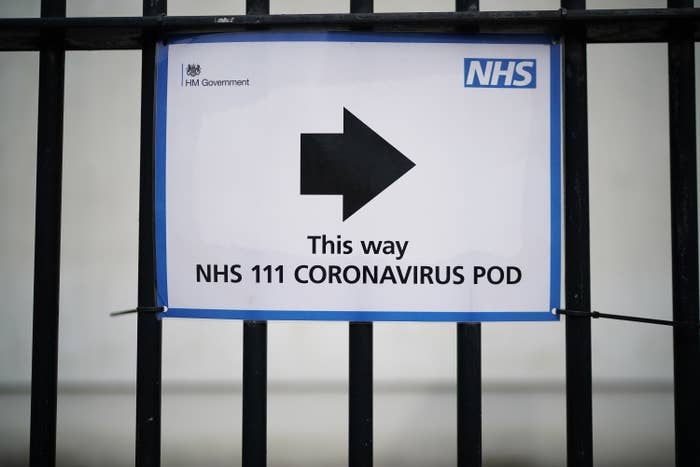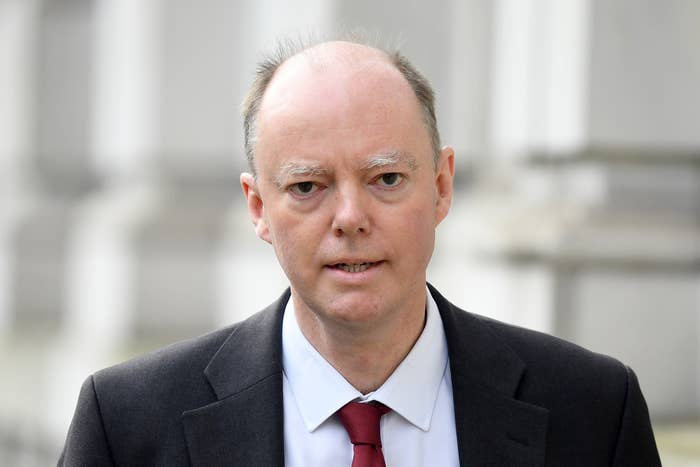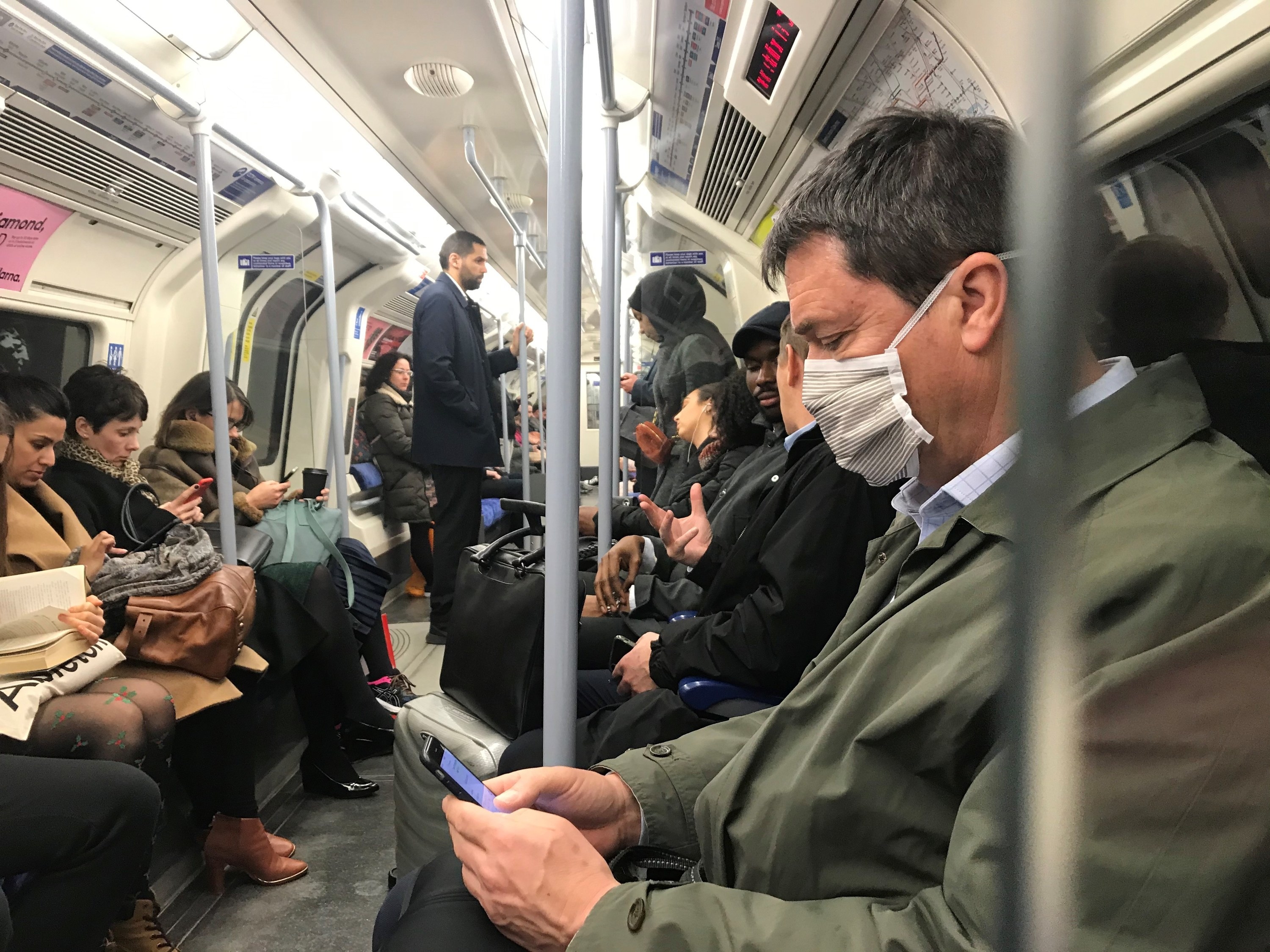
The first death from COVID-19 in the UK was announced late on Thursday, as the government’s chief medical officer said the disease was likely now being transmitted between people who had no connection to cases overseas.
The UK is moving to the second stage of its plan to tackle the novel coronavirus — which causes the illness COVID-19 — from the “contain” phase, which was effectively a bid to stop it spreading altogether, to “delay”, which aims to slow down its spread in order not to overwhelm the NHS. Here’s the latest information we have on the virus in the UK.
The number of cases in the UK has risen to 115, up from 85 on Wednesday.
That number was accurate as of 9am on Thursday, according to the Department of Health and Social Care (DHSC). In England, there were 25 cases in London, 17 in the north-west, 17 in the south-east, 15 in the south-west, nine in the Midlands, eight in the east, and four whose locations are still to be determined.
But the proportion of people testing positive is still very low: As of this date, 18,083 people had been tested in the UK, of which 17,968 were confirmed negative and 115 were positive.
Chris Whitty, the chief medical officer, announced on Thursday evening that a patient who tested positive for COVID-19 had died. "The patient, who was being treated at the Royal Berkshire Hospital, was an older patient who had underlying health conditions," he said. "We believe they contracted the virus in the UK and contact tracing is already underway."
The Royal Berkshire NHS Trust said: "The patient has previously been in and out of hospital for non-coronavirus reasons, but on this occasion was admitted and last night tested positive for coronavirus."
There has been some confusion over whether the government will publish the locations of each case.
Before Wednesday this week, the government had published daily updates on both the numbers and locations (at the county level) of new coronavirus cases in the UK. However, they announced on Wednesday that locations will instead be released in a weekly roundup every Friday. This caused an outcry among some health experts who said the public had a right to know where the virus had hit.
On Thursday, DHSC clarified that it would now release daily updates of geographical breakdowns at a local authority level. The first will be published on Friday.
Boris Johnson came under fire over this on ITV’s This Morning, as presenter Phillip Schofield said he needed local data to know if his elderly mother should go out shopping or stay at home. Johnson said he understood the concerns — he insisted he wanted to “overcommunicate” with the public — but officials wanted to make sure they had completely accurate information before publishing.
Whitty told the House of Commons health select committee that officials were working on a digital “dashboard” so that people could see at a glance where the virus had hit. But he warned against releasing geographical data at “street level” because this could lead to patients being identified. He accused some media outlets of the “vilification” of coronavirus patients in recent weeks, in a likely reference to the use of the loaded term “super spreader”.

The UK is moving into the next phase of tackling the coronavirus.
There are four strands to the government’s strategy: “contain, delay, research and mitigate”.
We were told on Tuesday that the UK was still in the containment stage, which effectively means trying to get rid of the virus completely. But on Thursday, Whitty said the country was now “mainly” in the delay phase. That means the disease is here — and now officials need to slow down its spread so the health service is not overwhelmed and people can get the best treatment.
A wide range of measures are being considered in the delay phase — including banning large gatherings and encouraging people to work from home — but officials don’t want to start these too early. Health experts have said it could take at least two months for the coronavirus to reach its peak, and such strategies should be deployed further down the line so they have the best chance of working.
There is no need to close Parliament down at the moment.
Whitty played down a front-page report in The Times newspaper that parliament could be suspended for five months to prevent the country’s 650 MPs from spreading the virus around the country. But he said MPs, peers, and parliamentary staff who are “older” or have “pre-existing health conditions” could stay at home and avoid Westminster in the weeks to come. They could benefit from “some degree of isolation”, he said.
Commons Leader Jacob Rees-Mogg echoed his comments, telling MPs: “There are no plans to close the House down. The public will expect Parliament to sit and get on with its job. Parliament has proven itself to be very resilient over the years.”
The UK government doesn’t want to close down schools like Italy has done.
Italy, which is battling the most serious outbreak of the coronavirus in Europe, has confirmed it will close all schools for 10 days in a bid to contain the disease. But Whitty said he believed there was not enough evidence to show it would make a real difference in the UK and it had to be weighed up against the disruption caused to society. Closing schools may only have a “marginal effect” on the transmission of the virus — and yet have a huge impact on working parents, particularly those in the NHS. He also pointed out that coronavirus cases among children appear to be rare.
The decision is ultimately up to ministers and will depend on the spread of the virus over the coming weeks; some schools may have to close because so many teachers are off sick. But the government is looking at changing the law so that pupils can attend other schools in that instance.

Medical students could join retired doctors in helping to treat coronavirus patients — as well as “fit for work” benefits assessors.
Whitty confirmed to MPs that medical students could be brought into the NHS frontline if needed, and said there was a real “willingness” among recently retired medics to come back.
Health secretary Matt Hancock has also said he will consider plans to allow thousands of trained healthcare professionals who currently carry out “fit for work” assessments for benefit claimants, on behalf of the Department for Work and Pensions, to help with frontline care. That prospect was raised by Tory MP Caroline Nokes in the Commons on Tuesday.
She told BuzzFeed News the suggestion was made to her by a retired doctor in her constituency. “I can see that seconding people from the DWP will cause issues with waits for assessment, but it might bring forward a large number of trained healthcare professionals in a crisis,” she said. “It looks like we are headed to a crisis so there needs to be some lateral thinking about where people can be found from.”
Smokers are more at risk from the coronavirus than other people.
"If you’re going to give up smoking, this is a very good time to do it,” Whitty said. He insisted that smokers shouldn’t automatically self-isolate or act differently to other people, but said smokers faced an “additional vulnerability” because the virus affected the respiratory system.
Asked whether fit and healthy people could die from COVID-19, Whitty said: “Yes — but it is incredibly rare.”

